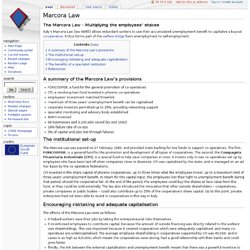

A new trend line for global banking. After climbing for 30 years, the share of economic activity attributable to bank revenues fell in the wake of the global financial crisis.

Looking forward, revenues could flatline at about 5 percent of GDP through 2020 (exhibit). In fact, that’s our base scenario for the global banking industry—one that implies growth at the same rate as nominal GDP, following the pattern of other industries. In developed markets, factors contributing to this trajectory include deleveraging and stiffer regulatory regimes that will require higher bank-capital ratios. In many emerging markets, banking penetration is relatively low (less than 4 percent in India, Mexico, Nigeria, and Russia, for example). In others, it is falling—in China, from 6.2 percent to 5.3 percent, we estimate, mostly as a result of credit liberalization, which will go on dampening margins.
Exhibit Banking’s growth as a share of global economic activity may be leveling off. Enlarge About the authors. The Vital Edge - Disruptively Good Business. Mondragon Corporation. Mondragon cooperatives operate in accordance with Statement on the Co-operative Identity maintained by the International Co-operative Alliance.

History[edit] The determining factor in the creation of the Mondragon system was the arrival in 1941 of a young Catholic priest José María Arizmendiarrieta in Mondragón, a town with a population of 7,000 that had not yet recovered from the Spanish Civil War: poverty, hunger, exile and tension.[2] In 1943, Arizmendiarrieta established a technical college that became a training ground for generations of managers, engineers and skilled labour for local companies, and primarily for the co-operatives.[3] Before creating the first co-operative, Arizmendiarrieta spent a number of years educating young people about a form of humanism based on solidarity and participation, in harmony with Catholic Social Teaching, and the importance of acquiring the necessary technical knowledge.
The first 15 years were characterised by enormous dynamism. Finance[edit] Marcora Law. The Marcora Law - Multiplying the employees’ stakes Italy’s Marcora Law (law 49/85) allows redundant workers to use their accumulated unemployment benefit to capitalise a buyout co-operative .

It thus forms part of the welfare bridge from unemployment to self-employment. A summary of the Marcora Law’s provisions FONCOOPER, a fund for the general promotion of co-operatives CFI, a revolving loan fund invested in phoenix co-operatives employees’ investment matched threefold maximum of three years’ unemployment benefit can be capitalised corporate investors permitted up to 25%, providing networking support specialist monitoring and advisory body established €40m invested 89 businesses and 3,100 jobs saved (by end 1992) 10% failure rate of co-ops 5% of capital and jobs lost through failures The institutional set-up The Marcora Law was passed on 27 February 1985, and provided state backing for two funds to support co-operatives. Encouraging risktaking and adequate capitalisation References. What A Detroit Supper Club Teaches Us About Co-Creativity. A social movement is underway in downtown Detroit.

Each month, 100 or so individuals pay $5 for admission to a loft, where they eat a dinner of organic soup (and other foods) prepared by volunteers. Diners share ideas and connections, hear presentations from artists who are working on projects aimed at improving the city, and then vote on which project will receive proceeds from the evening's dinner. Detroit SOUP organizers call the gathering "a democratic experiment in micro-funding," but it’s much more than that: It’s an example of the power of co-creativity, and it represents the way forward for organizations that want to remain relevant and reach consumers in an authentic way. In recent years, crowdsourcing has become a trendy tactic for soliciting input and engaging consumers, but in reality this approach is nothing more than an open call for submissions.
Yesterday, businesses succeeded through industrial or technological expertise, with little need to converse with consumers. Community Resilience and Coproduction SCDC briefing paper.doc.